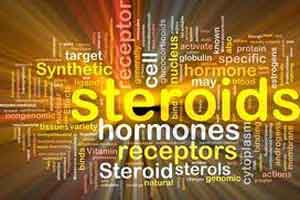- Home
- Editorial
- News
- Practice Guidelines
- Anesthesiology Guidelines
- Cancer Guidelines
- Cardiac Sciences Guidelines
- Critical Care Guidelines
- Dentistry Guidelines
- Dermatology Guidelines
- Diabetes and Endo Guidelines
- Diagnostics Guidelines
- ENT Guidelines
- Featured Practice Guidelines
- Gastroenterology Guidelines
- Geriatrics Guidelines
- Medicine Guidelines
- Nephrology Guidelines
- Neurosciences Guidelines
- Obs and Gynae Guidelines
- Ophthalmology Guidelines
- Orthopaedics Guidelines
- Paediatrics Guidelines
- Psychiatry Guidelines
- Pulmonology Guidelines
- Radiology Guidelines
- Surgery Guidelines
- Urology Guidelines
Role of steroids in treating septic shock: NEJM

The results from the largest ever study of septic shock could improve treatment for critically ill patients and save health systems worldwide hundreds of millions of dollars each year.
Researchers at The George Institute for Global Health studied whether the use of steroids as an additional treatment to septic shock - a severe life-threatening infection - would improve survival.
In the results published in the New England Journal of Medicine, they found steroids not only reduced the duration of septic shock, but also the time spent on life support therapy in intensive care. However, the use of steroids did not lead to fewer deaths overall compared to not receiving steroids.
Lead author Professor Bala Venkatesh, of The George Institute for Global Health, said: "Our results show there is still a lot to learn about septic shock which kills up to half of those affected in some parts of the world. There are undoubtedly many other contributors to survival which we don't yet understand.
"But, we have finally shown what part steroids play in the treatment of these patients. If we can reduce the time is spent in intensive care units that not only frees up space for other patients, it saves health systems worldwide a huge amount of money."
Steroids have been used for over 50 years to treat septic shock - a life-threatening illness that occurs when the body's response to infection leads to low blood pressure that reduces blood flow to vital organs and tissues such as the heart, brain, kidney, and liver. Steroids are thought to improve the circulation by counteracting the severe inflammation seen in septic shock. However, there was uncertainty about the optimal dose and duration of steroids and concerns that steroids may result in adverse complications to patients.
In this international trial conducted in 3800 patients in Australia, New Zealand, the UK, Denmark and Saudi Arabia, researchers showed that while the use of steroids did not reduce death rates, steroids led to a more rapid resolution of shock, were taken off mechanical ventilation earlier, received less blood transfusions and were discharged from intensive care earlier than those patients who did not receive steroids.
The trial will add high-quality evidence about the safe and effective use of steroids for patients with septic shock.
Co-author Professor John Myburgh, of The George Institute for Global Health, said: "Anyone can get sepsis, young, old, fit and healthy. It does not discriminate. Those that survive can be left with substantial injuries such as amputated limbs, and post-traumatic stress disorder.
"It is essential that we raise awareness of this disease so people can get treatment more quickly, but we will also need to find better and more effective care for those who go into septic shock."

Disclaimer: This site is primarily intended for healthcare professionals. Any content/information on this website does not replace the advice of medical and/or health professionals and should not be construed as medical/diagnostic advice/endorsement or prescription. Use of this site is subject to our terms of use, privacy policy, advertisement policy. © 2020 Minerva Medical Treatment Pvt Ltd